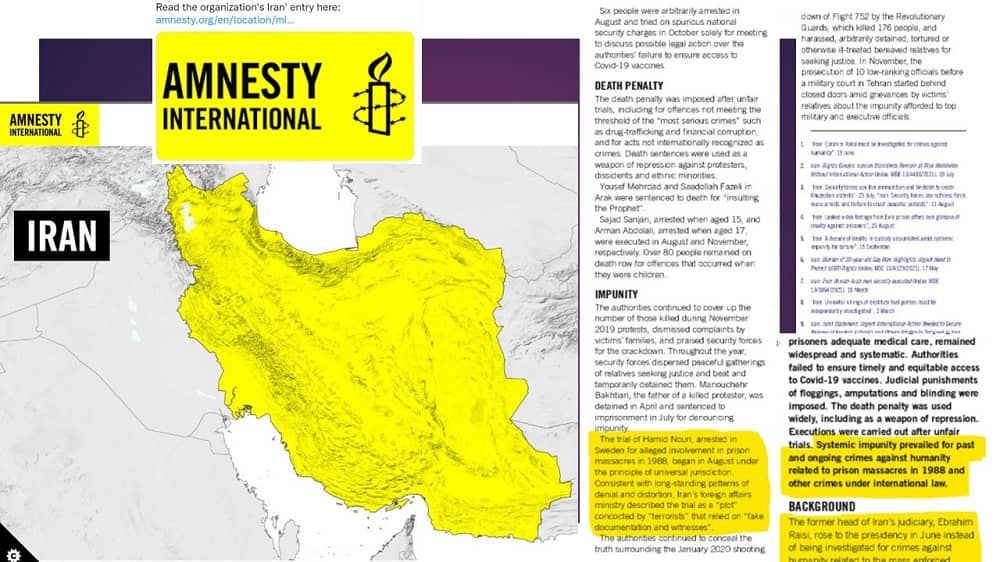
“Ebrahim Raisi, rose to the presidency in June instead of being investigated for crimes against humanity related to the mass enforced disappearances and extrajudicial executions of 1988, reflecting systemic impunity in Iran”
This is quoted from Amnesty International’s annual report on the human rights situation in the world in 2021 in the section on human rights violations in Iran.
The following is an excerpt from the report:
Iran 2021
Thousands of people were interrogated, unfairly prosecuted and/or arbitrarily detained solely for peacefully exercising their human rights, and hundreds remained unjustly imprisoned. Security forces unlawfully used lethal force and birdshot to crush protests. The death penalty was used widely, including as a weapon of repression. Executions were carried out after unfair trials.
Systemic impunity prevailed for past and ongoing crimes against humanity related to prison massacres in 1988 and other crimes under international law.
Background
The former head of Iran’s judiciary, Ebrahim Raisi, rose to the presidency in June instead of being investigated for crimes against humanity related to the mass enforced disappearances and extrajudicial executions of 1988, reflecting systemic impunity in Iran.1
Presidential elections were held in a repressive environment, with a markedly low turnout. Authorities barred women, members of religious minorities and critics from running, and threatened to prosecute anyone encouraging election boycott.
Strikes and rallies punctuated the year as authorities failed to prioritize adequate wages, housing, healthcare, food security and education in public budgets.
Environmental experts criticized the authorities’ failure to address Iran’s environmental crisis, marked by loss of lakes, rivers and wetlands; deforestation; water pollution from raw sewage and industrial waste; and land sinking.
In February, a Belgian court sentenced Iranian diplomat Assadollah Asadi to 20 years’ imprisonment for his role in a thwarted bomb attack against a rally by an exiled Iranian opposition group in France in 2018.
In March, the UN Human Rights Council renewed the mandate of the Special Rapporteur on Iran. The authorities denied him, other UN experts and independent observers entry to Iran.